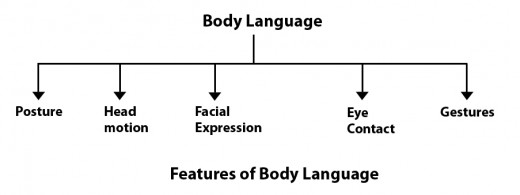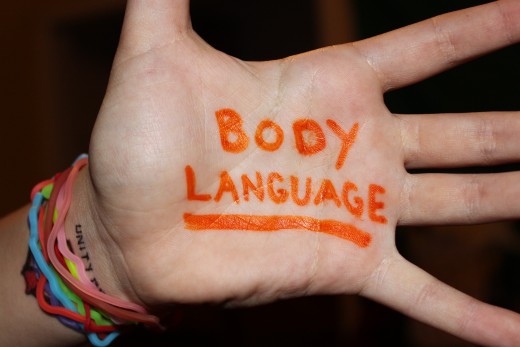Lie Detection...Stop believing the lies of others.

It's necessary to lie?
Must people in the world at least lie once a day, maybe you don't realize about this but everyone in your surrounding try to lie at each possible situation. Most of people lie because of fear, or a possible incoming treat, it's a normal response, it's a normal mechanism of defense...sometimes some people take this mechanism too far away.
It's not bad to lie if your preparing a surprise for someone or want to keep a secret from someone, those are called "white lie", innocent lies that don't hurt anyone, but in some way those lies are the training for some future white-less lies.
In the modern world it's important to keep track of the detection of lies, because we'll meet a lot of liars in our way, work or even inside the families. It's important to learn "How to detect a liar? and How to turn the game against them?". There are several ways to detect lies and read the body language of a liar, and more importantly turning the game against a liar and put them against the sword and the wall it's a real art now a day.
For some liars the "art of deceiving" is the normal way to see the world around them, this is called "mythomania" the necessity to lie to the people around them with out reason.
Communication.
The best ally to any liar is their memory, in this case they will be able to reproduce the lie many times with accuracy in the details and not only to one person, they can take it to a bigger crowd, making the lie even more viable.
The common signal of a lie in a person:
- Change in the tone of the voice, depending of the details of the story they can be exaggerating or making an emphasis in some parts.
- Too many intermediate words like: "ehh", "mmm", etc. the bad liars need time to think the next step of the story, the good liars already have the whole story prepared.
- Amazing changes in the story, making a simple scenario an extraordinary one.
- The constant lubrication of the throat at the beginning and the clearing of it with the time passing, this is thanks to the action of the adrenaline and the saliva production.
- Impulsive response: No one remembers a situation with extreme precision, if you ask them a question and them instantly answer it, they are lying.
- They tend to focus in some parts more than others, this is common because they try to evade more imagination in their lies.
- Repeated sentences: they try to stay focused in their lie by making links with specific sentences.


Body Language.
The body language in combination with the knowledge of a good communication can be key when we are in front of a good liar. This way we can make sure that the person in front of us is lying, or preparing to tell a lie.
There are five essential parts to efficiently recognize the body language:
- Posture.
- Hand motion.
- Facial expression.
- Eye contact.
- Gestures.
We need to keep close watch to this parts if we are going to "read" the body language correctly. A good reading is enough to start detecting lies, and the best part, start to predict a lie and with that ability being able to change the things, turning the liar against himself.
Where do you detect more lies?
Stances
the combination of the five parts of the body language build or create "stances". This stances are used in some type of scenarios and paying attention to some special body signatures can help us a lot recognizing a liar or a lie.
The main part is the whole body or the posture of the person this will tell us the general view of the person, along with the hand motion and facial expression when they tell us some parts. The gestures will help us when they are being questioned and tell us how they're reacting. Last but not least the eye contact is very important because "The eyes are the mirror to the soul" indeed they're the mirror to the soul, a good reading of the body language focusing in the eyes can bring down any lie.
- Alert stance: In this stance they are paying to much attention to something in particular or to what you're saying or going to say, they'll try to keep a close eye contact and keep they hand in one position, making a face and gesture of interest. A liar will pay extreme attention to your questions and reactions and with that information they will try to change or adapt the lie to your way.
- Run away stance: in this stance they are looking impatiently, a little nervous, moving hands and head around and trying to avoid long questions, tapping with their feet but at the same time looking for an excuse to leave the place, they'll tend to pay attention to you but constantly are looking at the watch or the surrounding try to run away, avoiding eye contact. A liar will be in this stance in the moment you discover the lie, that's why it's important to not reveal that you already discovered the truth, instead we need to lead the liar to a point of no return.
- Passive/Aggressive stance: this posture is common when someone is doing something that makes us angry but we try to control ourselves, it's normal to put the hand behind us or grab the wrist of one hand in front of us, keeping a strong eye contact and a serious face, in a dominance way. A liar will use this posture to defend the lie, trying to be more aggressive when you don't believe and being more passive when you're believing the lie, in this case we need to let them believe that you're buying the trick, making them fell comfortable.
- Defensive stance: This posture is used when someone does not agree with someone statements or simply they don't like the people in the surrounding and tries to keep the away, it's common when you're being questioned about a secret and you want to keep that to yourself. A liar will use this stance to decline a question or to keep something away from you normally they try to keep away the emotions to do a good lie, also when you confront a liar this will be the usual stance.
- Insecurity-nervous stance: In this stance they tend to retract to themselves, trying to avoid contact and try to defend themselves in an emotional level, they normally take their hand to the pockets or close them tightly, also is normal to see that they're sweating more than the normal. A liar will use this to defend himself, avoid the questioning or the embarrassment of being discovered.
- Comfort stance: this posture is the normal one when you're relaxed and pay attention to your surrounding but no too much. This posture is the perfect for a liar, avoiding suspicion of being lying around, they try to add a little of excitement when telling the lie to keep the attention on them, but instantly they pose in a comfortable posture to make the people surrounding believe in their stories.

What can I do to discover a liar?
When we're against a liar we need to use the combination of communication with body language, try to follow some of this tips:
- Pay attention to the story, later ask questions about an specific part and change something, the color of something, what the liar say, the positions of the people of the story; change something and the liar will need to re-think the story again, depending in the time and answer, this will help you.
- Tell them to re-tell the story backwards, an instant liar cannot remember the facts in the lie, they don't use the memory to tell you the lie they used the imagination, but if the liar had time to build the timeline of the lie this can be useless.
- Pay close attention to the body language, this will help you to recognize a lie partially at least, use the communication, questioning but not demanding, make specific question in dates, streets, locations, linear questions, but suddenly change the type of questions, what the liar was doing before or after the story, what they were eating or drinking.
- Let them have the victory first, you'll find a weak spot sooner or later...there're people that are very bad at lying easy to detect them, but also there're people with years of practice and some of them live from lying and deceiving people.
About the Author.
My name is David Zermeño, and I bring this Hub to you for extra knowledge about the ability to deceive or lie to someone, this article can help some people to be better liars but for some can help them to detect a liar also.
I hope you liked this Hub and keep the interest in it, you can give me a feedback to keep good articles in my profile. Any question is welcomed and I'll gladly answer them all.
Thanks for reading, and be a living lie detector.





